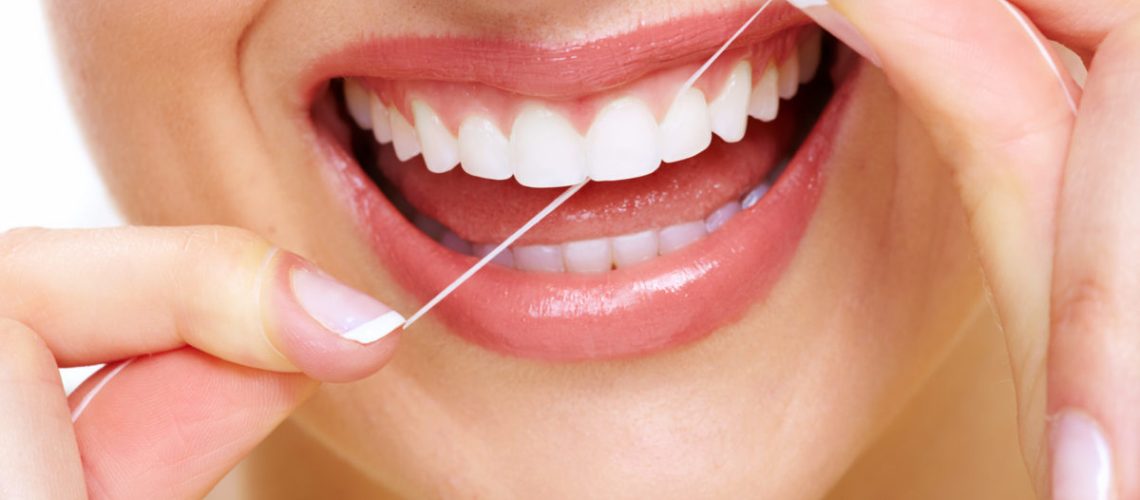Dental implants offer the best permanent solution to replace damaged or missing teeth from root to crown. However, just like your natural teeth, dental implants require care to maintain their longevity. Improper or negligent care can lead to damage of both the implant post and the crown, leading to costly replacement. Additionally, you are still at risk for gum disease and peri-implantitis without properly caring for your gums. Luckily, with good oral hygiene such as regular brushing and flossing, you can enjoy your beautiful new smile for decades to come!
Need more information about your dental implant? Call Desert Dental Alternatives today to schedule an appointment with our dental experts!
Dental Implant Long Term Care
Dental implants can last a lifetime, with the dental crown that fits the implant screw lasting an average of 15 years. However, this implant lifespan is only achieved with proper dental care. Your gums are also in need of proper oral hygiene after receiving a dental implant. In fact, gum disease caused by poor oral hygiene can progress into peri-implantitis (periodontitis that affects gums with dental implants) that can lead to bone loss and implant failure.
Despite this, dental implants are considered the easiest dental procedure to care for. To avoid health concerns and maintain the lifespan of your dental implants, you simply have to follow basic oral hygiene guidelines, with a few updates specific for a dental implant.
1. Brush twice daily
With or without a dental implant, brushing your teeth twice a day is important to maintain good oral hygiene. While you cannot get a cavity on a dental crown, plaque can still accumulate. This can lead to damage of the materials that make up the crown, causing you to potentially have to replace it sooner than intended. Do make sure you are brushing for a full 2-3 minutes and replace your toothbrush every three months.
2. Use a soft-bristled toothbrush
You may have to switch to a softer toothbrush once you get your dental implant. Using a stiffer brush can lead to gum loss above the crown, which can expose the implant screw. You will want to purchase a nylon brush, and may consider one designed especially for dental implants, as it helps to reach all around the crown. Using a metal interdental brush can also scratch and damage the crown, so as a general rule, only use non-metal dental tools.
3. Floss daily
Again, a daily floss routine is vital regardless of having a dental implant or not. However, it is especially important to floss thoroughly around a dental implant to avoid potential costly damage to your beautiful dental work. Improper flossing can lead to gum disease and potential bone loss, which may even inhibit the ability for a dental implant.
4. Use implant-friendly floss
Just like your toothpaste and mouthwash, you want to ensure you are selecting an implant-friendly floss. If you cannot find an implant-specific floss, just be sure it is unwaxed tape-floss, which can otherwise potentially pop off your crown. It is also recommended to use a Waterpik: an oral irrigation water flosser, and the only one proven safe to use with dental implants. This can help reach hard-to-reach spots, as well as reduce inflammation and bleeding. However, be sure to note that water flossers cannot replace regular flossing and should only be used as an additional oral hygiene tool.
5. Avoid abrasive oral hygiene products
Rinsing your teeth is an important step to good oral hygiene. However, you want to ensure you are avoiding harsh mouthwashes and toothpastes, such as those aimed at whitening the teeth. These products can cause damage to both your crowns and natural teeth by breaking down the enamel and leading to potential chips and cracks. You can check the mouthcare product’s abrasive level by checking its RDA rating. You can also be sure to drink enough water. This helps to produce the saliva necessary to enact your mouth’s natural self-cleaning system, as well as to rinse out food from your teeth after meals between brushings.
6. Avoid other habits that can compromise your crown
There are a few additional habits you need to consider eliminating that can compromise your dental implant and crown:
- Smoking that weakens bone structure and leads to a myriad of gum concerns
- Drinking alcohol in excess that can cause tooth and gum sensitivity
- Eating hard or sticky foods that can pull on the crown and compromise the implant post
- Chewing on ice and biting your nails, which can crack or chip the crown
- Teeth grinding and jaw clenching (if you are at risk for this, consider being fitted for a nightguard by your dentist!)
7. Visit your dentist every six months
You should already plan to visit your dentist for regular check-ups and cleaning every six months. With dental implants, this is especially important so your dentist can ensure the structure and integrity of your dental implant and crown is intact. With regular visits, you can be sure to maintain the quality of your dental implant for years to come!
Your Dental Implants from Desert Dental
If you need a consultation for potential dental implants or want to check on previous dental restoration, Desert Dental Alternatives is here for you! We will ensure your dental implants are receiving proper care and can guide you with any alterations or options necessary to maintain a confident, bright smile for your lifetime.
Whether you already have dental implants or are considering dental implants, our cosmetic dentistry team at Desert Dental Alternatives can provide the information you need for quality dental care. Call us TODAY!


